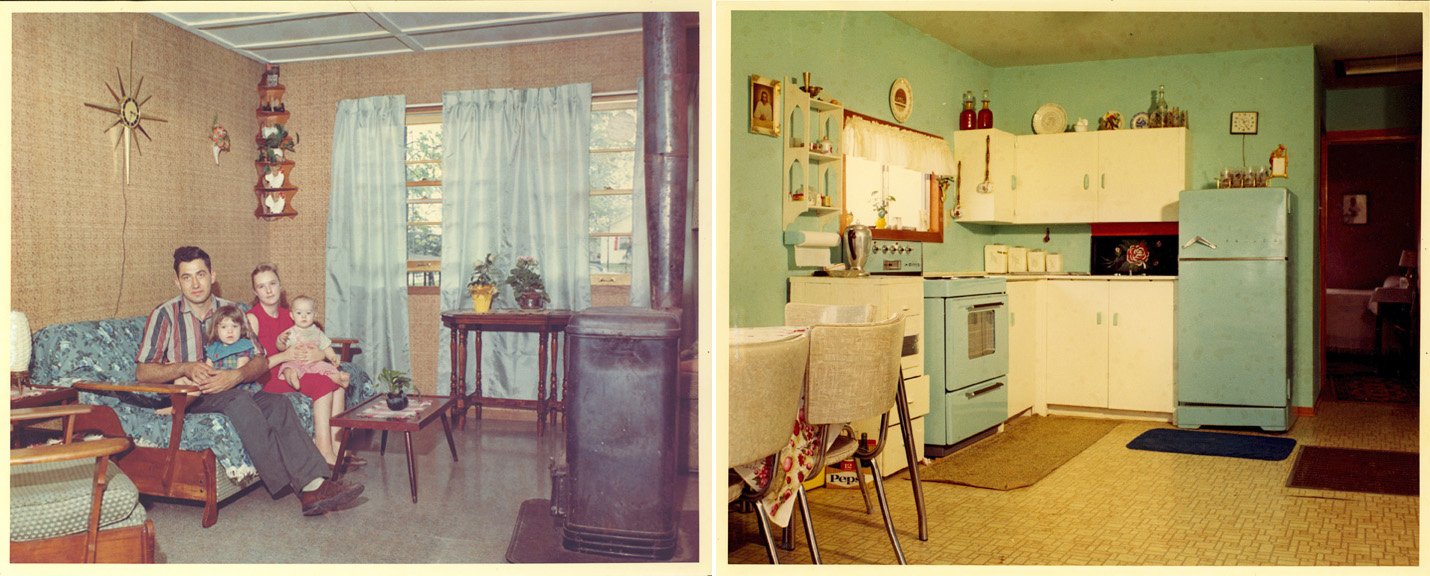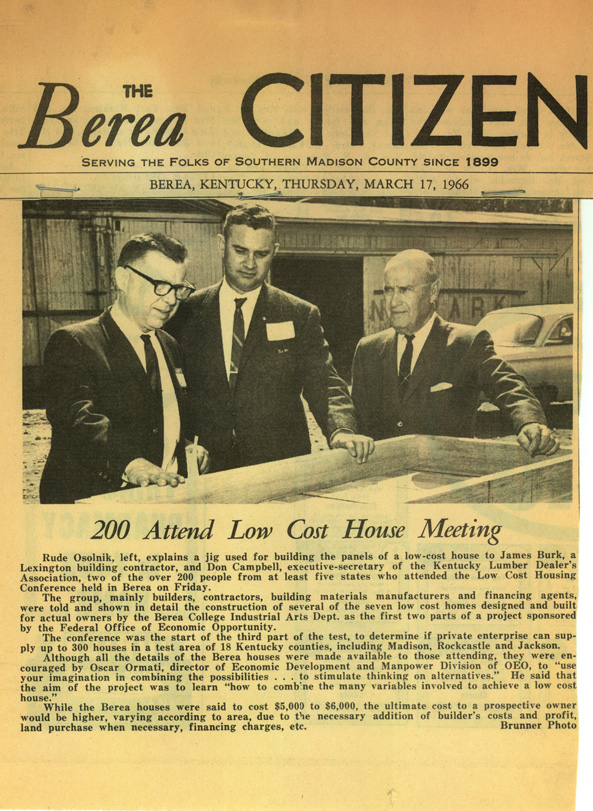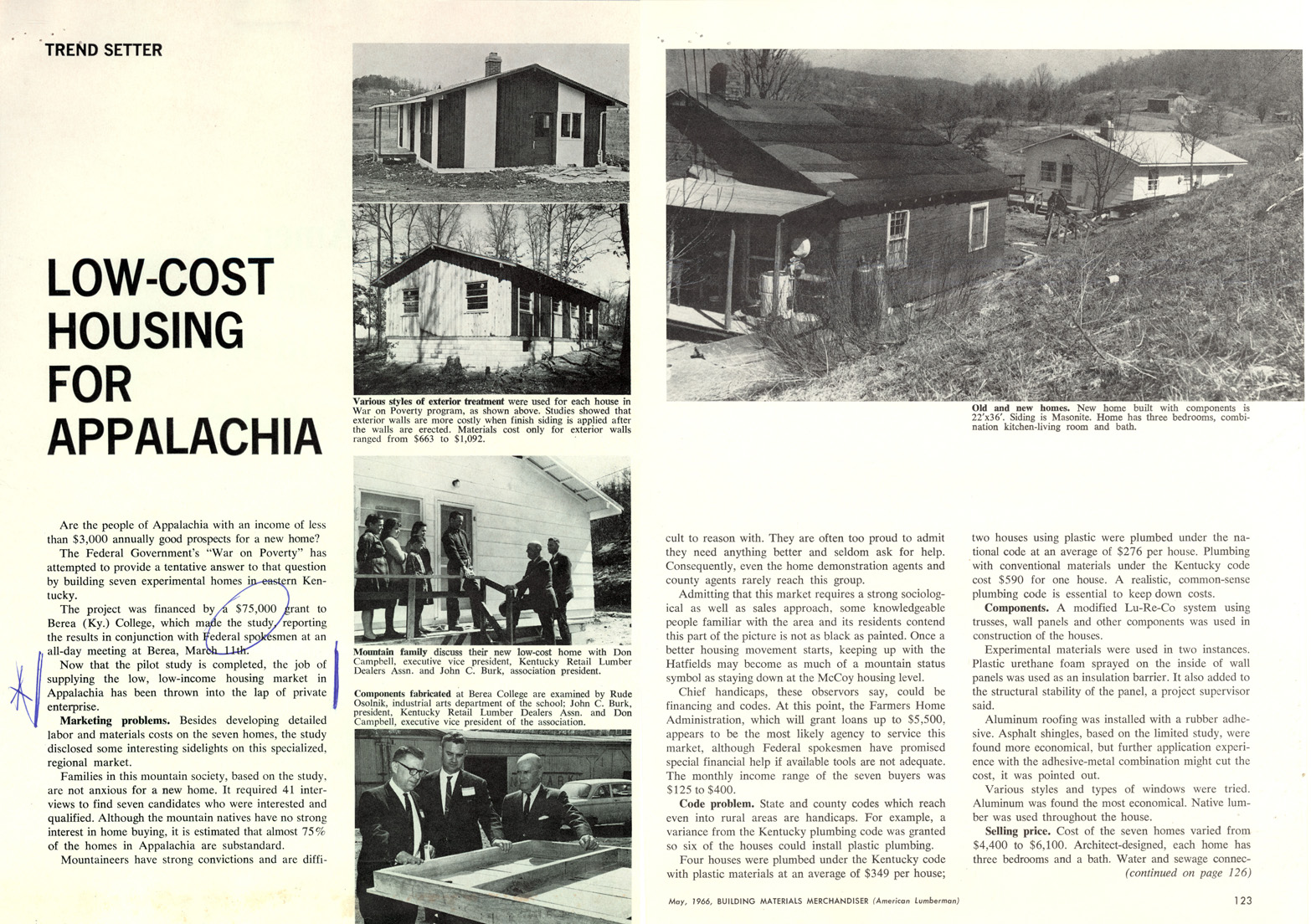By Laura Laugle
Much of my time lately has been spent buried deep in the remnants of the everyday business of the Office of Economic Opportunity, where official government policies and memoranda abound. Though all of it is informative, to say that I find every item I come across riveting would be untrue. Luckily, a few striking photographs caught my attention and cried out for a closer look.

A young family pictured in their new home in Berea, KY. I’m especially fond of the kitchen. Those robin’s egg blue appliances would probably sell for thousands in an upscale vintage shop. Très mod-chic!
These images come from a series of photographs documenting the Berea, Kentucky low-income housing demonstration of 1966. It seems to have been a constant concern of the OEO and its subordinate agency, the Community Action Program, that most of the programs participating in L.B. Johnson’s War on Poverty focused only on the problems of the urban poor. The fear was that the rural poor: farmers, miners, etc. would slip through the cracks simply because their population was scattered so widely that they had little chance to organize representation within or outside the realm of state and federal governments. Thus, CAP, headed by Theodore Berry, helped start educational programs on effective farming and ranching, rural transportation programs and housing projects like this seven home demonstration community. The result of this project was a community of fairly well built homes with all the modern conveniences of 1966, (Hooray for indoor plumbing!) and the input of local private industry on how and why they might be persuaded to build in underdeveloped rural areas.
Today, Berea is one of the fastest growing cities in the nation and boasts a thriving tourism industry thanks to its mountain views and reputation for high quality artisan products, but the lessons learned from the rural poverty demonstration there have helped many other Appalachian towns thrive by helping private industry to see the profit in building for the poor and brought the problems of rural poverty in focus for suburban and urban America.
In 2010, the University of Cincinnati Libraries received a $61,287 grant from the National Historical Publications and Records Commission of the Archives and Records Administration to fully process the Theodore M. Berry Collection in the Archives & Rare Books Library. All information and opinions published on the Berry project website and in the blog entries are those of the individuals involved in the grant project and do not reflect those of the National Archives and Records Administration. We gratefully acknowledge the support of NARA.



